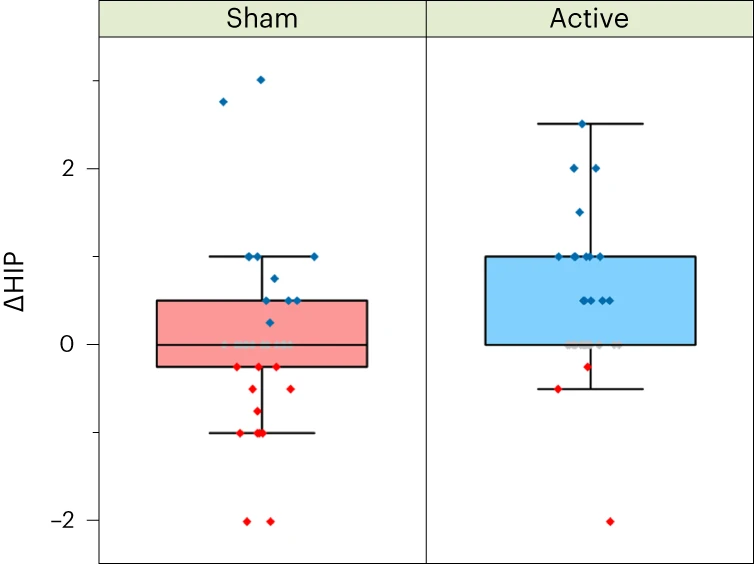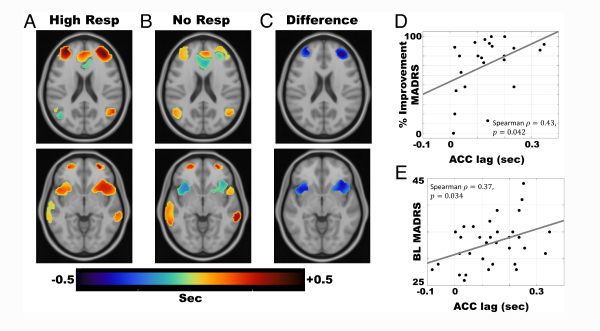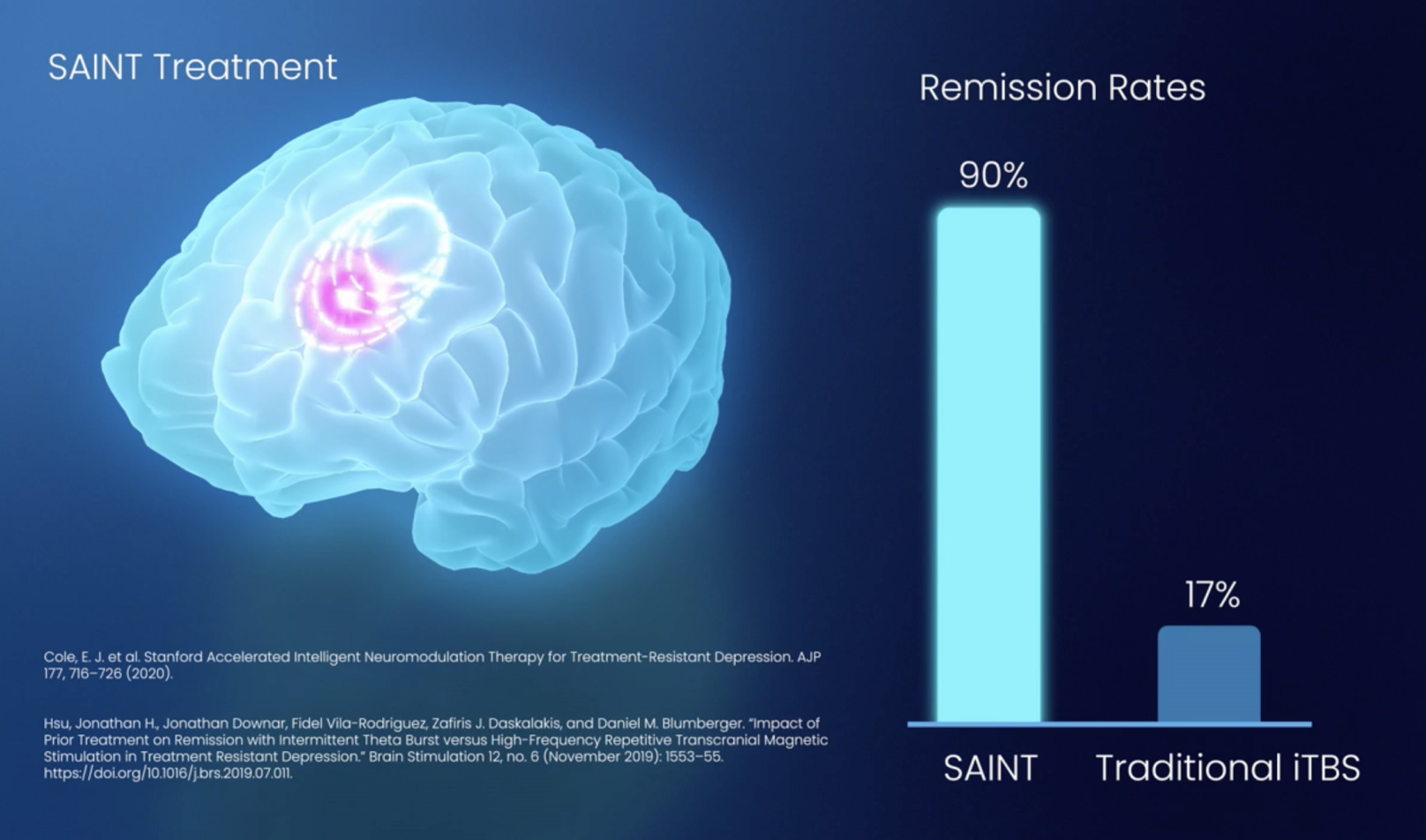A Powerful New Therapy for Treatment-Resistant Major Depression
Dr. Williams and his colleagues at Stanford developed a non-invasive and rapid-acting treatment for depression that has proven to be highly effective in eliminating depressive symptoms quickly – in as few as five days – in a clinical setting. Termed SAINT, this advanced form of transcranial magnetic stimulation (TMS) is personalized to each person’s brain neurocircuitry. The brain function of people who suffer from depression is often out of balance. Areas in the brain that help people control their emotions are underactive, while areas that generate negative or aversive emotions are hyperactive. SAINT targets core functional brain mechanisms of depression in a precise and personalized manner.
In clinical trials, treatment with SAINT for major depressive disorder resulted in a significant reduction in depressive symptoms at four weeks after the five-day treatment protocol. Results from a double-blinded randomized controlled trial (RCT) evaluating SAINT were published in the American Journal of Psychiatry and demonstrate that the novel approach has the promise to be a reproducible, rapid, and effective treatment for severe, refractory depression. The results show that 79% of people in the active treatment arm entered remission—they experienced significant reduction of depression symptoms based on the Montgomery-Åsberg Depression Rating Scale (MADRS)—compared to people in the sham treatment arm, where 13% entered remission.
“SAINT is a next-generation neuromodulation approach where targeting the stimulation according to each person’s individual neurocircuitry we are able to provide a neurobiologically informed rapid-acting therapy for treatment-resistant neuropsychiatric illness.”
– Nolan Williams, M.D.
Stanford Hypnosis Integrated with Functional-Connectivity Targeted TMS (SHIFT) - A noninvasive brain stimulation protocol designed to increase responsiveness to hypnosis-based treatments
Hypnosis-based treatments offer an affordable, low-burden, and non-pharmacological alternative to several neuropsychiatric conditions that are primarily treated with medication. Yet, not all people experience equal benefits from hypnosis. Dr. Williams and researchers in the Brain Stimulation Lab developed the non-invasive brain stimulation protocol, SHIFT, designed to increase people’s responsiveness to hypnosis-based treatments. Based on previous research by David Spiegel, M.D., and others, researchers designed a neuroimaging-guided intervention using repeated TMS (rTMS) to a region in the brain. Initial findings published in Nature Mental Health suggest this approach increased the responsiveness to hypnosis. Future applications will test clinical modifications of SHIFT to enhance non-pharmacological treatment.

Biomarkers for Treatment-Resistant Depression
The BSL was the first to reveal just how TMS changes the brain to reduce symptoms of depression – by reversing the direction of abnormal brain signals. These findings, published in the Proceedings of the National Academy of Sciences, suggest that backward streams of neural activity between key areas of the brain could be used as a biomarker to help diagnose depression and decide how likely someone is to respond to the SAINT treatment.
Dr. Williams and his team are actively exploring application of this novel approach to other conditions as well as other hardware technologies for applying SAINT.



